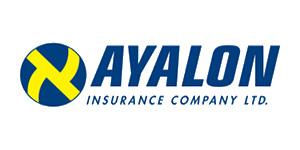- เรื่องราวความสำเร็จของลูกค้า
- Ayalon Insurance

A risk-based approach to combat money laundering in Israel

SAS enables insurers to comply with industry regulations.

Identify, assess and mitigate risk
Ayalon Insurance achieved this using • SAS® Anti-Money Laundering
SAS® Anti-Money Laundering helps Ayalon Insurance monitor suspicious activity and meet challenging regulatory requirements
When the OECD Financial Action Task Force (FATF) started its blacklist in 2000, Israel was one of 15 countries judged to be “non-cooperative” in the global fight against money laundering. Since then, the country has cracked down on financial crimes by imposing strict legislations and upping enforcement of anti-money laundering laws. Israel became a full member of the FATF in December 2018, and today the country confiscates more than US$25 million a year as a result of its efforts.
As one of Israel’s largest insurance companies, Ayalon Insurance is subject to anti-money laundering laws and therefore must take action to identify, assess and mitigate the risk of money laundering and terrorist financing inside its business.
Regulations have become more stringent as Ayalon has diversified its financial and insurance offerings, which now include life and non-life insurance, long-term savings and health insurance – business lines that each require their own anti-money laundering practices.
For years, the Tel Aviv-based insurer has relied on innovative technology like advanced analytics to develop new products and operate more efficiently. And as new regulations rolled out, Ayalon invested in SAS Anti-Money Laundering to anchor its compliance initiatives.
SAS’ industry knowledge and insurance-ready models have helped us realize complex solutions in half the time.Amit Geva CIO and Executive Vice President Ayalon Insurance
A growing problem
Money laundering is a growing problem for insurers worldwide. As financial systems work to close loopholes that previously left them vulnerable, criminals are increasingly turning to insurance as a way to clean money.
Use of third-party brokers and agents makes the insurance sector particularly attractive for criminals. On the whole, these entities are less adept at screening customers or asking difficult questions, and less alert to suspicious activities and forms of payment.
Suspicious activity in insurance includes early termination of products, particularly in the first few weeks, and using several different forms of payment or purchasing several products at once. Unrelated policy beneficiaries also raise red flags with insurers.
Because of its geographic location, Israel faces a particularly high risk of terrorist financing from outside the country. And domestically, fraud, tax offenses, organized crime, public sector corruption and high use of cash pose their own money laundering risks. Financially speaking, the country is under siege, and it is taking strong action to combat this growing threat.
Ayalon Insurance – Facts & Figures
1976
year founded
1,000
employees
5
regional offices
Multiple detection streams
Ayalon uses SAS Anti-Money Laundering to detect financial crime in multiple ways. The insurer deploys transaction monitoring scenarios that use data from existing monitoring production systems like CRM systems, legacy systems that manage customer records and additional systems that drive web-based applications.
Risk scoring is done through overnight batch processing of applications, allowing investigators to identify and triage high-risk transactions. All the generated alerts are aggregated at the entity level. This helps Ayalon analysts investigate a single incident as opposed to screening multiple alerts, thereby gaining a holistic view of risk. The intelligent alert processing and out-of-the-box workflows enable Ayalon analysts to investigate incidents more efficiently.
“SAS’ industry knowledge and insurance-ready models have helped us realize complex solutions in half the time,” says Amit Geva, Ayalon CIO and Executive Vice President. “The ability to assimilate complex and advanced capabilities in a short time has enabled us to meet challenging regulatory timetables.”
With compliance measures in place, Ayalon plans to expand its use of SAS Anti-Money Laundering in phases. Over the next five to 10 years, the company will use the software to “add value around compliance” and support new product development. In particular, the insurer plans to support its growing ecosystem of agents, independent brokers and third-party companies with a solution to assure compliance and support creative portfolio development.
“Working with SAS gives us two strategic advantages,” Geva says. “Immediately, we can comply with anti-money laundering regulations and deal with the various complexities. SAS helps us exceed these requirements while supporting effective business processes. And in the long term, SAS’ knowledge of the insurance industry and best practices will be important considerations as we continue to innovate.”
Building on a strong relationship
The relationship between Ayalon and SAS began several years ago with the development of a strategic enterprise data warehouse. Since then, thousands of users have relied on SAS to perform their daily work. The company uses data-rich reports to drive operational and management decision making at all levels – from agent to CEO. It also applies SAS technology to ensure data quality across the organization.
“We chose SAS Anti-Money Laundering for its ability to handle complex validation scenarios,” Geva says. “Also, I have confidence in the SAS team in Israel, which understands our business better than any other vendor we reviewed. Finally, removing risk from the process was critically important. Timelines were short, and this project did not allow for experiments. A proven solution was needed, and SAS was the answer.”
